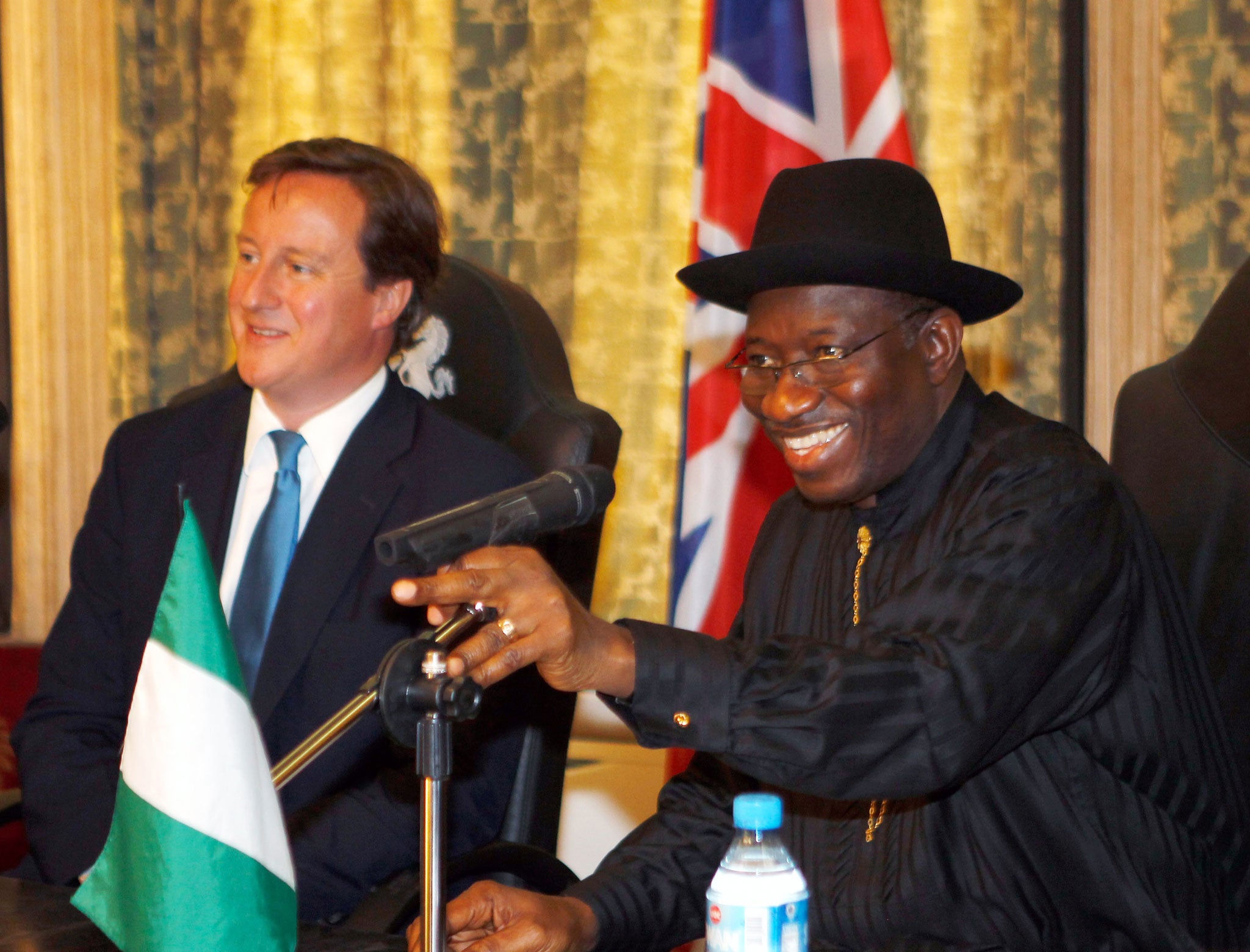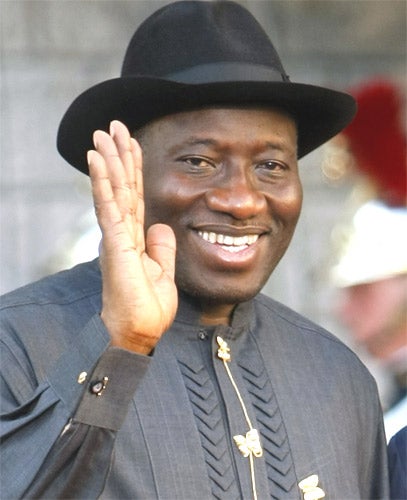The Independent's journalism is supported by our readers. When you purchase through links on our site, we may earn commission.
The politics behind Nigeria's anti-gay law must be understood before Cameron reconsiders UK aid
Homophobia is not the only motive behind these unsavoury measures

Even before last week, the lot of Nigeria's homosexuals was not to be envied. But, on January 7, embattled President Goodluck Jonathan signed a bill into law that made their situation even worse. Now, in Nigeria, homosexual acts are punishable by a 14-year jail sentence; while aiding gay activism and gay groups is banned.
Homophobia is not the only motive behind these unsavoury measures. The bill is a calculated move to change the focus of the Nigerian political debate at a time when President Jonathan's luck appears to be running out.
In his 2011 presidential campaign, Jonathan promised to transform Nigeria's corrupt, oil-dependent and unequal economy into the powerhouse it could be. He had many of the tools to do it: some impressive ministers, enormous majorities in the National Assembly and the Senate, control over most state governments, and a stable multi-ethnic, multi-confessional party. Three years on, and the government is paralysed by multiple crises – not least, an era-defining split in the ruling People's Democratic Party (PDP) and increased ethnic, religious, and regional tensions. The President even asked his celebrated central bank governor, Sanusi Lamido Sanusi, to resign over a leaked letter concerning elite corruption. Now, as his position weakens, Jonathan is scrambling for a populist measure that will give him the domestic support he so desperately needs.

In a socially conservative society, an anti-gay position might prove enough of a distraction to relieve some pressure. But the debate over homosexuality in Nigeria, as in some other African countries, is about more than what happens in the bedroom. This bill is designed to stir up anger at an idea of imposed Western values, helping create solidarity at home by directing anger outwards. Why else would the law be presented as an “anti-gay marriage” bill, when few if any local activists were calling for gay marriage?
The inevitable reproach from the international community serves as an excellent positive feedback mechanism for the Nigerian President's strategy, giving ground to fears of outside interference in African affairs. This, despite the fact that Nigeria inherited its laws criminalising homosexuality from British colonial rule.
And, though Western media tends only to pick up on these stories when something awful happens, this bill itself is not new: several versions have already passed through the National Assembly. It has, in effect, been sitting in Jonathan's in-tray for the past two years, ready to be deployed when the beleaguered President's need is greatest.
With faith and community groups coming out in support of the bill, and a broadly favourable social media buzz, Jonathan can be satisfied with a good response. The editors of Nigeria's newspapers are still focusing on Jonathan's political difficulties, but growing opprobrium from Western leaders could soon knock the more damaging stories off the front pages.
Unfortunately, homophobia in Nigeria isn't a problem that Western strong-arming can fix. Indeed, a de-contextualized response is likely only to strengthen Jonathan's hand. Worse, it could incentivize other leaders to follow the example of Uganda's president Yoweri Museveni and Nigeria's Jonathan and drag out anti-gay legislation and sentiment as an easy fix for bad press.
John Kerry's censure of Nigeria over this bill or David Cameron's proposals to tie aid to gay rights sound progressive if you're sitting in London or New York. But that's precisely the point. These statements mostly serve to satisfy a domestic audience, rather than engage with LGBTQ activists struggling on the ground in Nigeria for equality.

It is doubtless important that Western politicians are seen to support gay rights in Nigeria. But some of the ways in which they profess their solidarity betrays a lack of understanding of the lived reality of LGBTQ people in oppressive societies. We shouldn't let homosexuals, for whom life is already dangerous, become scapegoats if the West punishes all Nigerians for Jonathan's choice to use hate as a distraction from incompetence. Rather than withdrawing aid from countries which enact vicious anti-gay laws - a policy gaining currency in the west - we should instead consider more cautious routes. Peter Tatchell, for example, suggests that governments should look to deliver aid via grassroots organisations that won't discriminate.
This most recent abuse of gay rights is even more perverse because it has been done for grubby political reasons. I suggest that we on the outside undercut Jonathan's feint by highlighting not only the abhorrent content of the bill, but also the motivations behind its passing. Then, perhaps, it wouldn't be so easy for failing leaders to cover up their incompetence with hatred.
James Schneider is the Editor-in-Chief of Think Africa Press. He is also a frequent commentator on African affairs on radio and TV.

Join our commenting forum
Join thought-provoking conversations, follow other Independent readers and see their replies